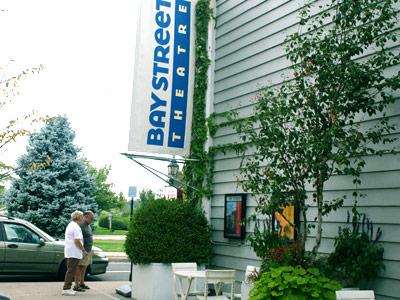Send In the (Ravenous) Pandas
Send In the (Ravenous) Pandas

Bamboo. Just the word can connote so much to so many: a serene Eastern ornamental, a sustainable building material, food for the endangered giant panda. But in East Hampton Village, and other nearby towns and villages, the inexpensive and fast-growing plant is often considered an invasive species and a noxious weed.
Several Dayton Lane residents sent letters to Larry Cantwell, the village administrator, and communicated with Tom Lawrence, the village’s code enforcement officer, about the encroachment of bamboo onto their properties. Their letters were accompanied by photographs showing the extensive damage to walkways and driveways, especially at the residence of Uwe Kind, where a neighbor’s bamboo plants have been growing unchecked.
“It’s spreading so fast, it’s like something out of a horror movie,” another neighbor, David DeSilva, said in a letter to the village.
The issue of a possible ban on bamboo was discussed at last Thursday’s East Hampton Village Board work session.
Bamboo is a favorite plant, worldwide, for screening. There are over 1,400 species in two categories — “clumping” bamboo, which tends to cluster and spread slowly, and the highly aggressive “running” bamboo, which is legendary for its sprouting ability. One type of bamboo was measured growing 39 inches in a 24-hour period.
The evergreen grass also increases its numbers by using rhizomes, or runners, which are strong enough to pierce through hardy plastic liners and likely to pop up in a neighbor’s yard.
Sag Harbor Village recently drafted a proposal to ban bamboo entirely, including tendering notices to owners to remove what is already growing on their properties or face fines or even two weeks in jail.
One option discussed by East Hampton was limiting bamboo to no less than 10 feet from a neighbor’s property line. “East Hampton Village has asked the village attorney to draft up some options about regulating or possibly outlawing bamboo,” said Mr. Cantwell.





